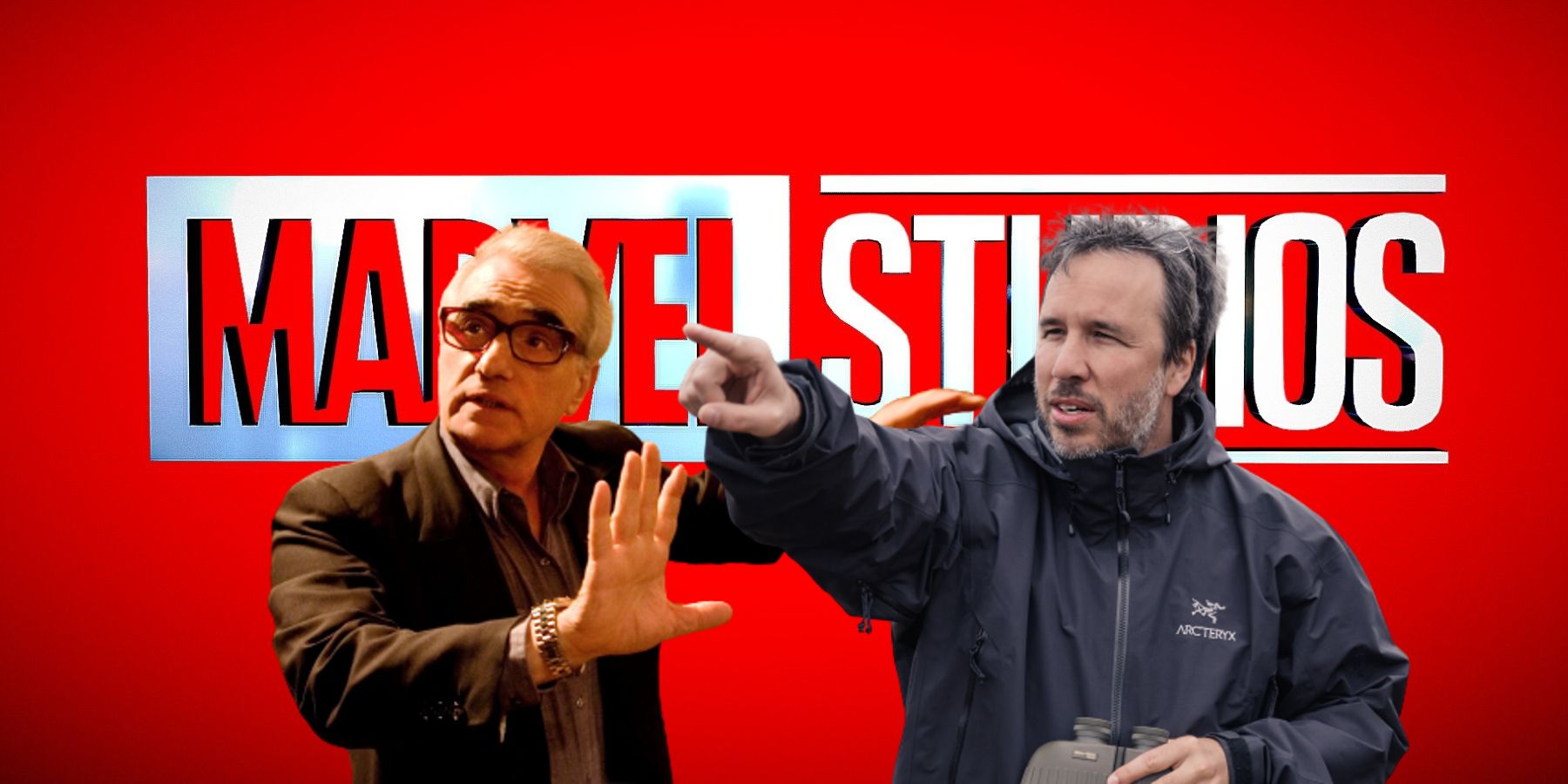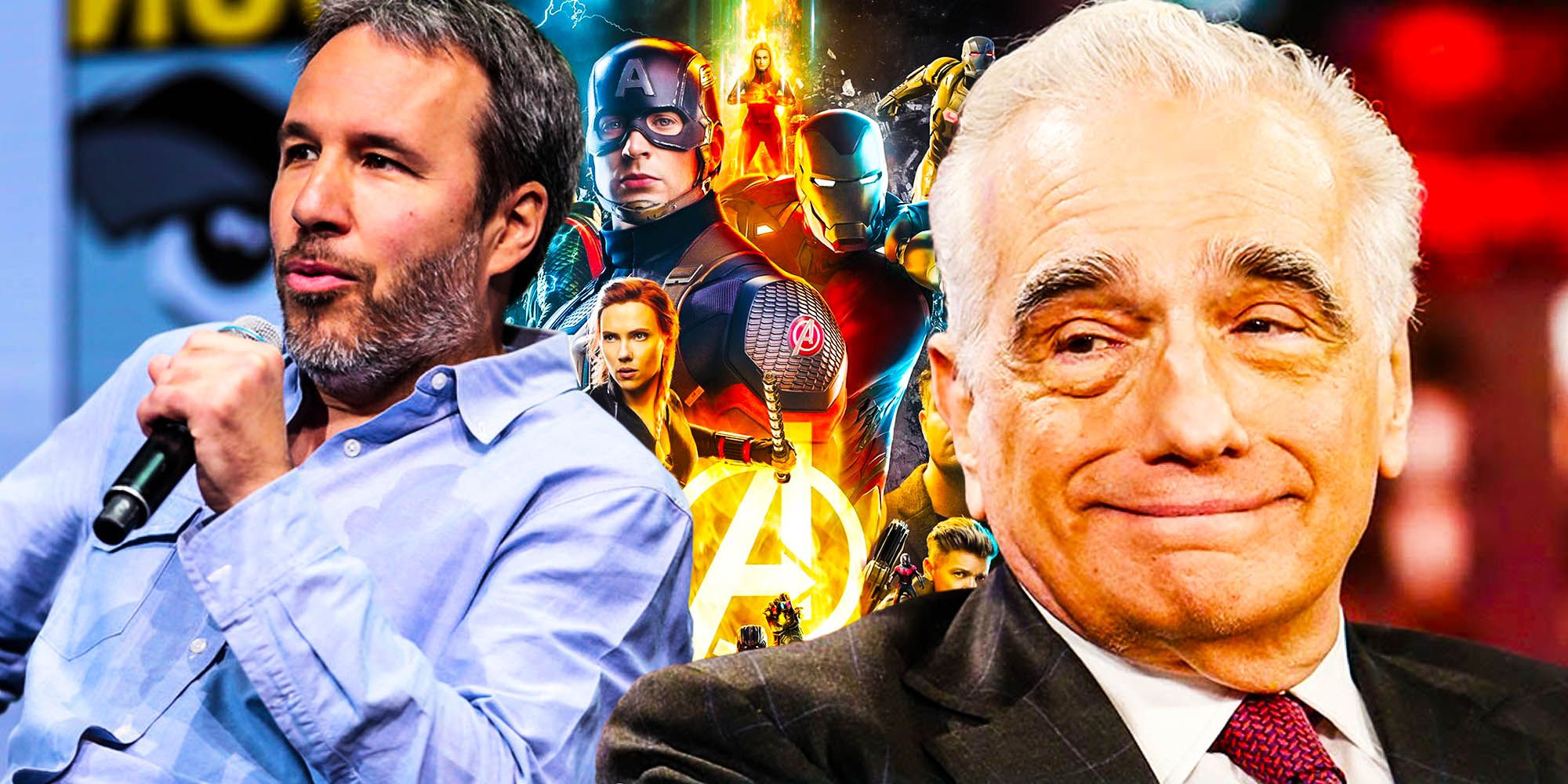The Marvel Cinematic Universe has been the target of criticism from A-List directors such as Martin Scorsese and Denis Villeneuve, however, these directors miss the wider point of the nature of studio tentpole filmmaking. The debate over Marvel’s movies was initiated in 2019 by Scorsese while on the press tour for his film The Irishman. He stated that he does not consider them “cinema” or art, instead of comparing them to theme parks.
Filmmakers and artists came out in defense of Marvel, while others showed support for Scorsese’s position, which he later clarified in greater detail, but did not back down from. When asked about the issue while promoting Dune, director Denis Villeneuve stated (via El Mundo) that “perhaps the problem is that we are in front of too many Marvel movies that are nothing more than a cut-and-paste of others,” adding “perhaps these types of movies have turned us into zombies a bit.” In contrast to this, speaking at the Götenberg Film Festival in 2020, actor Stellan Skarsgård’s take on the Scorsese/Marvel debate went to the heart of the issue; capitalism.
Marvel Studios and their movies are part of the Hollywood studio system, which at the end of the day is a business out to make money, securing a decent return on investments. The monopolization of film companies by big corporations has driven out mid-range films. Skarsgård says it's not Marvel’s fault, it’s “the fault of an idea about how the economical systems of the world should work.” It's important to note though (and this is what A-List directors keep missing in their criticism) that this change would have happened with or without the MCU. It’s the nature of capitalism to chase what is popular and that will sell in the search for maximizing profit. With these tentpole movies, especially from Marvel’s expected box office, movie studios have (unless something goes horribly wrong) a safe margin for a decent return, which in turn, keeps the system going. They are called tentpoles for a reason; their profits hold up the studio “tent” each year.
The tentpole movies also give the studios a monetary cushion to then take a financial risk on projects that auteurs such as Scorsese and Villeneuve like to make, putting art before commerce. Their recent films have had large budgets (Scorsese’s most recent films usually cost in excess of $100 million or more, while Dune cost $165 million to produce) yet it is never assumed that they will reach the highest-grossing MCU movies at the box office. It is also true that studios have little interest anymore in the mid-budget movies that often produce the most artistically creative cinema. However, these haven’t disappeared altogether but instead found a new home on streaming services where the risks can be better managed and they don’t have to rely on having a strong opening weekend or competing with the latest tentpole releases.
The risk with placing financial return over creativity is that the quality of the films can easily suffer; in this regard, Marvel has shown time and again that they can maintain a high standard. The success of Marvel Studios (which itself was a huge financial risk when they had to take out a $525 million loan to make Iron Man and The Incredible Hulk) has enabled them to branch into episodic TV with their MCU Disney+ shows. This format has allowed many up-and-coming, diverse creatives the space and support network to showcase their talents. These potential future A-List directors will have gotten their big break with the "theme park" franchise. While the Marvel Cinematic Universe certainly has a formula, the studio process still allows for visionary filmmakers to put their stamp on a project, even if the overall system they’re working in is more concerned with profit margins.








